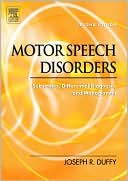Diagnosing Learning Disorders, Second Edition: A Neuropsychological Framework
"Recent years have seen major advances in understanding and treating a wide range of neurodevelopmental disorders that affect children's learning and behavior. This authoritative work provides an accessible overview of what learning disorders are, how they develop, and how to diagnose them and intervene appropriately. The second edition has been substantially revised and expanded to bring practitioners fully up to date. Now grounded in a multiple-cognitive deficit model of learning disorders...
Search in google:
From a trusted expert in the field, this authoritative work provides an accessible overview of what learning disorders are, how they develop, and how to diagnose and treat them effectively. The author presents the most current neuroscientific knowledge on a range of conditions, including dyslexia, autism spectrum disorders, attention-deficit/hyperactivity disorder, and others. Practitioners gain vital insights and tools for making sense of children's impairments and strengths, collecting and interpreting diagnostic data from a variety of sources, and linking diagnosis to evidence-based interventions. The second edition has been substantially revised and expanded to reflect significant clinical and research advances. New to This Edition*Covers additional disorders: intellectual disability, mathematics disorder, and developmental coordination disorder, plus a chapter on less well-validated disorders.*New case illustrations and a focus on empirically based practice.*Now grounded in a multiple cognitive-deficit model of learning disorders, replacing the prior edition's modular, single-deficit model.*An illuminating chapter on controversial therapies separates myths from facts. Archives of Clinical Neuropsychology "Pennington''s book is not only highly recommended to anyone working with children having disabilities, but also highly recommended for students in training. The book covers a broad range of issues that are of essential importance in effective practice....Pennington''s delicate balance of covering a large number of topics and disorders with sufficient breadth and depth, with appeal to both researchers and practitioners, makes [this] one of the most valuable books available on the topic."--Archives of Clinical Neuropsychology
Pt. I Basic Concepts 1Ch. 1 How Learning Disorders Develop 3Ch. 2 Neuropsychological Constructs 13Ch. 3 Issues in Syndrome Validation 23Ch. 4 Less Well-Validated Learning Disorders 28Ch. 5 Differential Diagnosis 35Pt. II Reviews of Disorders 43Ch. 6 Dyslexia Bruce Pennington Pennington, Bruce Robin L. Peterson Peterson, Robin L. Lauren M. McGrath McGrath, Lauren M. 45Ch. 7 Speech and Language Disorders Bruce Pennington Pennington, Bruce Robin L. Peterson Peterson, Robin L. Lauren M. McGrath McGrath, Lauren M. 83Ch. 8 Autism Spectrum Disorder Bruce Pennington Pennington, Bruce Lauren M. McGrath McGrath, Lauren M. Robin L. Peterson Peterson, Robin L. 108Ch. 9 Attention-Deficit/Hyperactivity Disorder Bruce Pennington Pennington, Bruce Lauren M. McGrath McGrath, Lauren M. Robin L. Peterson Peterson, Robin L. 152Ch. 10 Intellectual Disability Bruce Pennington Pennington, Bruce Lauren M. McGrath McGrath, Lauren M. Robin L. Peterson Peterson, Robin L. 181Ch. 11 Developmental Coordination Disorder 227Ch. 12 Mathematics Disorder 234Ch. 13 Nonverbal Learning Disability 242Pt. III Implications for Practice and Policy 249Ch. 14 Evidence-Based Practice: Barriers and Benefits 251Ch. 15 Controversial Therapies 264App. A Helpful Resources for Parents and Teachers 283App. B Useful Websites 287App. C Frequently Used Tests for Learning Disorders 289References 293Index 343
\ Reviewer: Christopher J. Graver, PhD, ABPP-CN(Madigan Healthcare System)\ Description: Dr. Pennington has long been at the forefront of learning disabilities research and clinical practice and this book is meant to be an authoritative text on learning disorders.\ Purpose: With an expanded, multiple-deficit model, this second edition of a seminal work significantly updates the literature in this area.\ Audience: It is intended for specialists working with children who have learning disorders. This may include developmental neuropsychologists, child psychologists, and school psychologists, among many others. The editor is a well published expert in this field who has gathered many other outstanding authors to contribute.\ Features: Short introductory chapters define relevant terms at a basic level. Well validated and questionable disorders are discussed, and disorders without clear empirical support are critiqued. From this point on, chapters increase in length and delve deeper into particular disorders, covering epidemiology, etiology, and comorbidities. The book also covers developmental trajectories, neuropsychological findings, and treatment recommendations. Case examples are replete throughout and help to translate research findings into clinical practice. Evidence-based practice and controversial treatments are covered in more detail in the final chapters. The index is helpful and the references clearly have been updated.\ Assessment: The first edition of this book was an authoritative source of information on learning disorders. This second edition carries on that tradition with a wide variety of evidence-based information and is well worth owning, given the significant updates. This is a superb example of a book worthy of the attention of both students and seasoned clinicians.\ \ \ \ \ Archives of Clinical Neuropsychology"Pennington's book is not only highly recommended to anyone working with children having disabilities, but also highly recommended for students in training. The book covers a broad range of issues that are of essential importance in effective practice....Pennington's delicate balance of covering a large number of topics and disorders with sufficient breadth and depth, with appeal to both researchers and practitioners, makes [this] one of the most valuable books available on the topic."--Archives of Clinical Neuropsychology\ \ \ NASP Communiqu�"This book provides a thorough review of current neuropsychological research for various forms of learning disorders....The book would fit well in a university classroom setting to prepare practitioners with a solid base of research to support accurate differential diagnosis work in the schools."--NASP Communiqué\ \ \ \ \ Journal of Autism and Developmental Disorders"Compelling because of the author's major contributions and long active presence in the field. His experience uniquely enables him to integrate the past with present research findings and practice....Can be utilized by practitioners (pediatricians, psychologists, therapists), researchers, and students to understand 'the latest' in the burgeoning literature on learning disorders, including autism. The user can quickly look up a disorder, find the clinical description and comorbidities, learn about the candidate genes, and how the disorder has been characterized via neuroimaging and neuropsychological studies....Compared to other books in this field, this book offers more evidence based interventions (when available) for the individual disorders. I recommend this for the intended audience (practitioners, researchers, and students), and also for already informed parents who wish to learn more about their child's condition."--Journal of Autism and Developmental Disorders\ \ \ \ \ NASP Communiqué"This book provides a thorough review of current neuropsychological research for various forms of learning disorders....The book would fit well in a university classroom setting to prepare practitioners with a solid base of research to support accurate differential diagnosis work in the schools."--NASP Communiqué\ \ \ \ \ \ NASP CommuniqueThis book provides a thorough review of current neuropsychological research for various forms of learning disorders....The book would fit well in a university classroom setting to prepare practitioners with a solid base of research to support accurate differential diagnosis work in the schools.—NASP Communiqué\ \ \ \ \ From the Publisher"Pennington provides an excellent overview of both theoretical and intervention aspects of learning disorders. This second edition examines learning disorders from a multifaceted view and provides detailed accounts of the assessment and intervention procedures needed to help individuals with these disorders. This book should be required reading for special education and school psychology professionals, as well as graduate students. Pennington should be commended for producing such an authoritative volume."--R. Malatesha Joshi, PhD, Professor of Literacy Education, ESL, and Educational Psychology, Texas A&M University "This unique book provides practitioners with a comprehensive picture of the broad array of conditions subsumed under the term 'learning disorders,' including dyslexia, ADHD, speech and language difficulties, autism spectrum disorder, and intellectual disabilities. For those who work with persons with learning disorders or who want to know more about this extremely complex subject, the second edition of Diagnosing Learning Disorders is a 'must read.'"--Steve Graham, EdD, Peabody College of Education, Vanderbilt University "In this second edition, Pennington captures the latest research and theories about learning disorders in a way that will be readily understandable for clinicians, scientists, educators, and graduate students. He cogently explains how the field has developed, thus providing a broader context for the new research that is covered. Extremely well written, and comprehensive in scope, this volume integrates information from clinical practice, cognitive neuroscience, and molecular biology. It is destined to be the authoritative reference on learning disorders."--Geraldine Dawson, PhD, Chief Science Officer, Autism Speaks, Inc., and Department of Psychiatry, University of North Carolina, Chapel Hill "Superb. A 'must' for educators, psychologists, and others who care about learning disorders and want to learn about the very latest scientific knowledge and its implications for clinical practice. Pennington is a trusted expert in learning disorders, one of only a small cadre of distinguished scholar-clinicians who not only know and create the science, but also work closely with children and adults who are affected. Here, theory and practice are linked in a scientifically rigorous and highly readable and relevant volume."--Sally E. Shaywitz, MD, Audrey G. Ratner Professor in Learning Development, Yale University School of Medicine; Co-Director, Yale Center for Dyslexia and Creativity; author of Overcoming Dyslexia "I am grateful to Pennington for this updated and expanded second edition....Especially useful are the authoritative, lucid discussions of controversial diagnostic entities and therapeutic approaches."--Martha Bridge Denckla, MD, Batza Family Endowed Chair and Director, Developmental Cognitive Neurology Clinic, Kennedy Krieger Institute \ "This updated work has been eagerly awaited. Pennington provides a basic understanding of the most common learning disorders, complete with the latest genetic and neuroscientific knowledge and clear examples of clinical presentations. In the second edition, the review of unproven therapies is novel and will surely prove useful to clinicians, who are frequently asked by families about these treatments. This book will become a classic for graduate students and practitioners in pediatric neuropsychology, child clinical psychology, and educational psychology."--Deborah Waber, PhD, Department of Psychiatry, Harvard Medical School, Children's Hospital Boston\ \ \ \ \ \ Archives of Clinical Neuropsychology\\u0022Pennington''s book is not only highly recommended to anyone working with children having disabilities, but also highly recommended for students in training. The book covers a broad range of issues that are of essential importance in effective practice....Pennington''s delicate balance of covering a large number of topics and disorders with sufficient breadth and depth, with appeal to both researchers and practitioners, makes [this] one of the most valuable books available on the topic.\\u0022--Archives of Clinical Neuropsychology\ \ \ \ \ \ Archives of Clinical Neuropsychology"Pennington''s book is not only highly recommended to anyone working with children having disabilities, but also highly recommended for students in training. The book covers a broad range of issues that are of essential importance in effective practice....Pennington''s delicate balance of covering a large number of topics and disorders with sufficient breadth and depth, with appeal to both researchers and practitioners, makes [this] one of the most valuable books available on the topic."--Archives of Clinical Neuropsychology\ \ \ \ \ \ Journal of Autism and Developmental Disorders"Compelling because of the author''s major contributions and long active presence in the field. His experience uniquely enables him to integrate the past with present research findings and practice....Can be utilized by practitioners (pediatricians, psychologists, therapists), researchers, and students to understand ''the latest'' in the burgeoning literature on learning disorders, including autism. The user can quickly look up a disorder, find the clinical description and comorbidities, learn about the candidate genes, and how the disorder has been characterized via neuroimaging and neuropsychological studies....Compared to other books in this field, this book offers more evidence based interventions (when available) for the individual disorders. I recommend this for the intended audience (practitioners, researchers, and students), and also for already informed parents who wish to learn more about their child''s condition."--Journal of Autism and Developmental Disorders\ \ \ \ \ \ NASP Communiqu�"This book provides a thorough review of current neuropsychological research for various forms of learning disorders....The book would fit well in a university classroom setting to prepare practitioners with a solid base of research to support accurate differential diagnosis work in the schools."--NASP Communiqué\ \ \
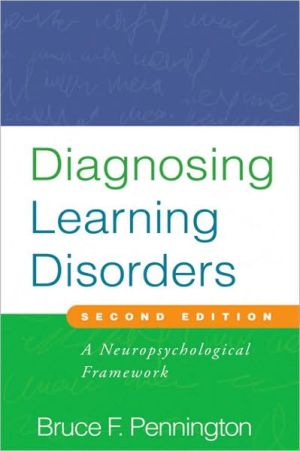
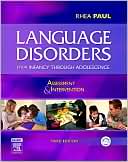

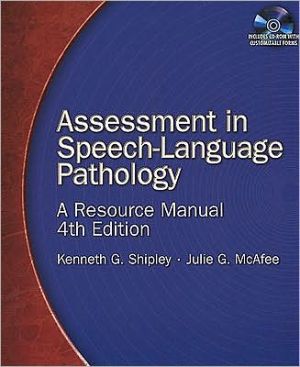
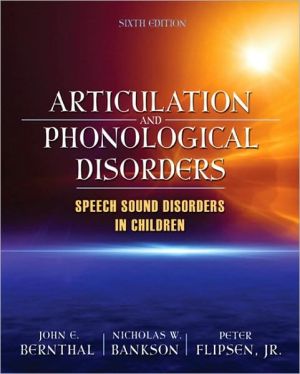
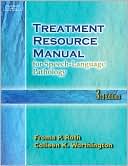
![Introduction to Audiology [With CDROM] Introduction to Audiology [With CDROM]](/application/data/covers/31/18/9780205593118.jpg)
